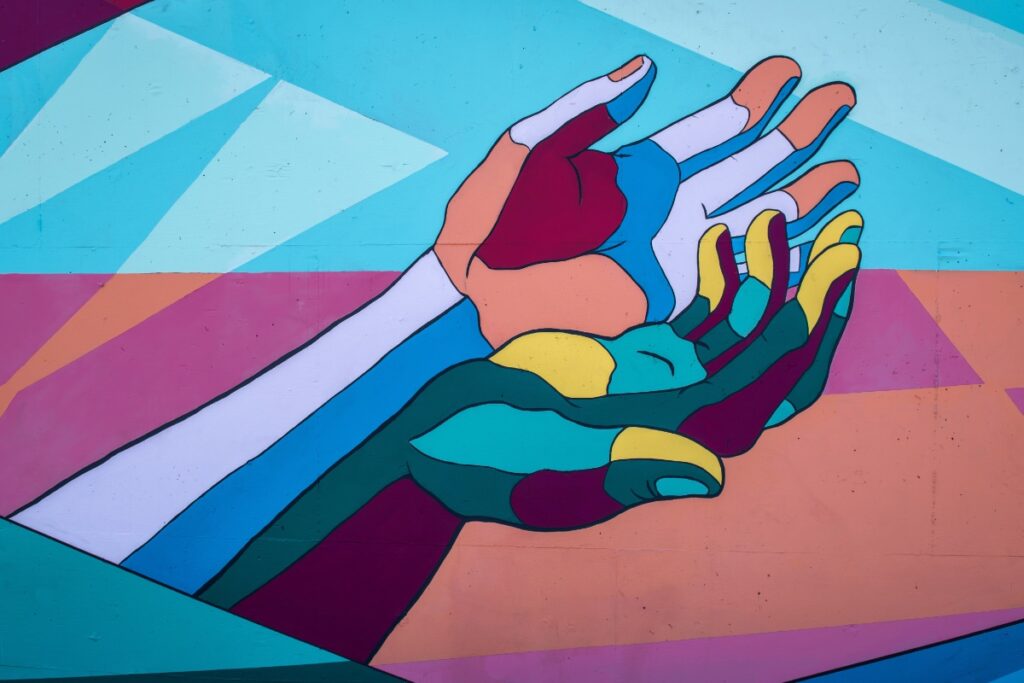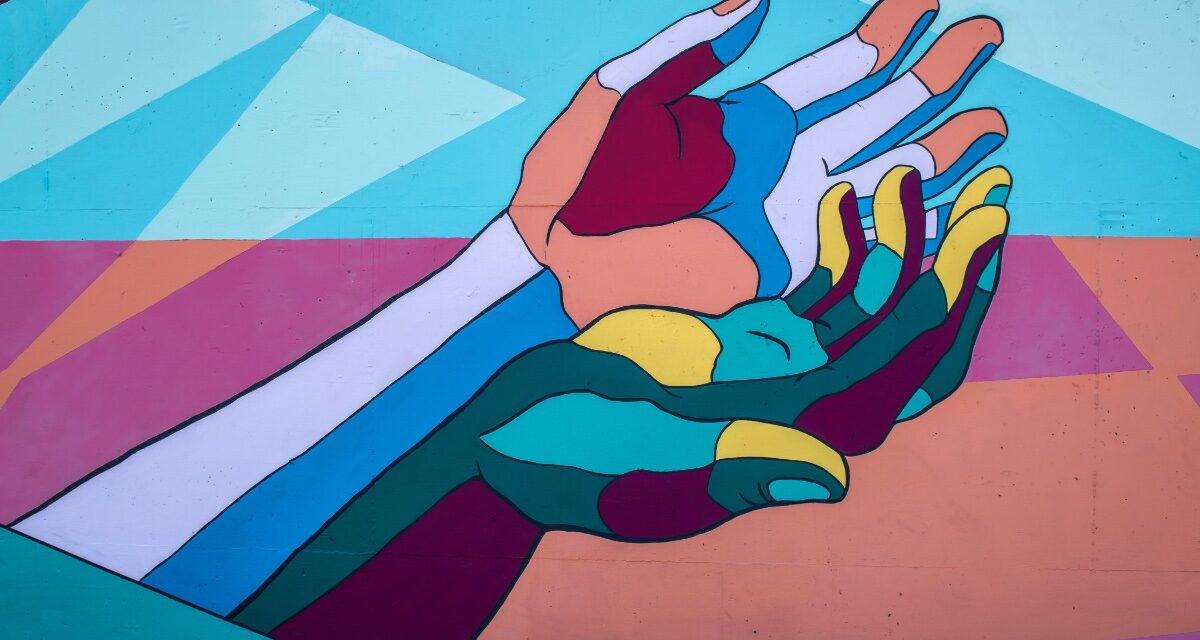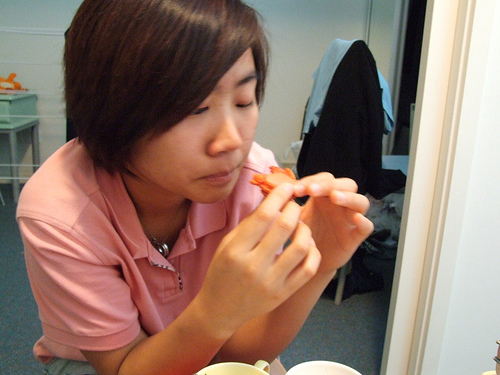This is a guest post by Sarah Otto.
Ignatian spirituality’s emphasis on co-laboring with God is something I’ve always been drawn to. It allows for God to be non-static, continually creating and laboring in the world through us. I’ve understood this as a privilege – God desires me and invites me to take part in the ongoing mission of Christ in the world. But during the Christmas season, I had been realizing that while yes, this is a gift, it’s not just a nice invitation. God doesn’t just desire us; God actually needs us.
It’s easy to imagine the vulnerability of the newborn Jesus. A baby is utterly dependent on its caregivers to meet its every need. Jesus had to be fed, swaddled, and soothed. He undoubtedly had spit-ups and blowouts like every baby whose digestive system is adjusting to life outside the womb! This dependency, I imagine, is assumed to be the human side of the mystery of Christ, the paradox of the fully-human-fully-divine. But let’s not forget that even before the Incarnation, the eternal God, too, was vulnerably dependent on the courageous ‘yes’ of Mary and the kind reception of Joseph, to hospitably welcome God’s son into their hearts, and home, and world.
 God’s Vulnerability
God’s Vulnerability
God needed a family to say yes in order to send the Son as a baby into the world because a baby needs caregivers. But God’s vulnerability was not limited to the helplessness of the newborn Jesus. Vulnerability is integral to God’s self and God’s creation. In his book The Four Loves, C.S. Lewis wrote, “To love at all is to be vulnerable,” and if we truly believe that God is love (1 John 4:8), then this vulnerability is intrinsic to the divine. Love is always unconditional, always vulnerable, or it is not love. Anything less would be transactional.
God is love. God is vulnerable. Yet our understanding of God’s omnipotence obscures our understanding of God’s abandoned love.
What are the implications of this? God needed the Holy Family. And as God continues to create in this world, God needs us. I imagine the disciples felt this responsibility and that is what inspired the sense of urgency so poignant in the early church – an understanding that God, the Church, Jesus’ mission, depended on them. As we enter into a new year, it’s a good time to reflect on how you are needed to continue Christ’s mission in the world. How might you be called to share your faith with those around you, as a beacon of hope and healing for those in need? How can you advocate for the kingdom of God, a kingdom of justice and mercy? What are the holy longings in your heart that need pursuing?
Your Needs
But another invitation is to reflect on your own needs, and to see holiness within them. If God so depended on others, we can too. There’s no shame in asking for help. God did. After six and a half years of marriage, my husband and I have given up on the romantic notion that we will know one another more intimately than we know ourselves. We’ve recognized that we are not mind readers and so in the stress of the pandemic this year, we’ve begun the practice of asking one another directly in moments of stress: what do you need right now? And it has been so freeing to vocalize our needs no matter how small – a hug, a listening ear, a break from parenting, etc. – and to trust that in having those needs met we will be a better parent, better spouse, better human. It has been a powerful practice of self-care, but also love of one another. Because in articulating our needs, we’re entrusting the other to love and help us. But this year has undoubtedly created big needs for so many, as well: financial needs amidst the economic crisis, emotional needs due to social isolation, physical needs from illness, etc. God is in these needs. Acknowledging one’s need is an act of love: of one’s self, of others, and of the God who is love.
From the Annunciation (Luke 1:26-38) to the Final Judgment (Matthew 25:31-46) God depends on us: for love and welcome, food and shelter, clothing and safety. And in so doing, God makes holy vulnerability and dependence. There’s holiness in needing one another.
How are you needed this year? What are your needs and can you trust that they are holy?
Sarah Otto grew up in the desert of Phoenix, Arizona. She earned her Masters of Divinity at the Boston College School of Theology and Ministry and is currently serves on the pastoral team at Ignatius House Jesuit Retreat Center in Atlanta, GA where she lives with her husband Andy and children, Eva and Oscar.
Listen to the podcast version of this post…









“God is vulnerable “— I have never considered this. Thank you for your lovely essay, Sarah.
Thank you for this lovely wise essay. Even after 38 years of marriage, asking “What do you need?” is great marriage advice for me!
Thank you so much for your devotional. It was a quote from Watchman Lee who said ” God has a need and it is our purpose in life to meet His need”. 1 Cor. 12:20 As it is, there are many parts, but one body. 21 The eye cannot say to the hand, “I do not need you.” Nor can the head say to the feet, “I do not need you.” 22 On the contrary, the parts of the body that seem to be weaker are indispensable”. I also had the need for someone else to say it because my friends think is heretical statement to say God has a need. Cesar Segura
GOD don’t need us, GOD desire a relationship with us. As believers we must co-exist with GOD HolySpirit abiding within the temple body. GOD has no need for us, we have a need for HIM.